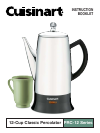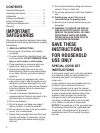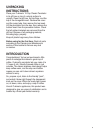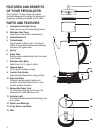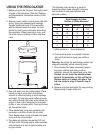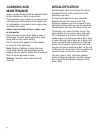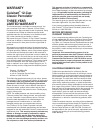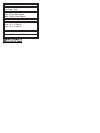
6
CLEANING AND
MAINTENANCE
Always remove the plug from the electrical outlet
before attempting to clean the percolator.
The percolator cover, basket, lid, and pump tube
(with spring) can all be placed in the upper rack
of a dishwasher or washed in warm soapy water
and rinsed thoroughly.
Never wash percolator body or power cord
in dishwasher.
Never immerse the percolator body in water or
other liquid. To clean, simply wipe with a clean,
damp cloth and dry before storing.
Do not use scouring agents or harsh cleaners
on any part of the percolator.
Note: Washer at bottom of pump tube must
move freely. Should coffee grounds become
trapped near the washer, loosen with a toothpick,
then run under tap water to clean.
Storage: Percolator should be stored with
cover off.
DECALCIFICATION
Decalcification refers to removing the calcium
deposits that form on the metal parts of the
percolator over time.
For best performance from your percolator,
decalcify the unit from time to time. The
frequency depends upon the hardness of your
tap water and how often you use the percolator.
Decalcification will clean the interior of the unit.
To decalcify, use cream of tartar, found in the
spice section of your grocery store, and water.
Put 2 tablespoons of cream of tartar into the
coffee basket, and fill the percolator with 6 cups
of water. Be sure that all parts are in place, and
make sure that the lid is securely on. Plug the
power cord connector into the cord insert and
plug the unit into an electrical outlet. Let the unit
run through its normal cycle. Once complete, dis-
card the cream of tartar and water solution.
Run one cycle of fresh, cold water (without
cream of tartar) through the unit at the comple-
tion of decalcification before using the unit to
brew coffee.



